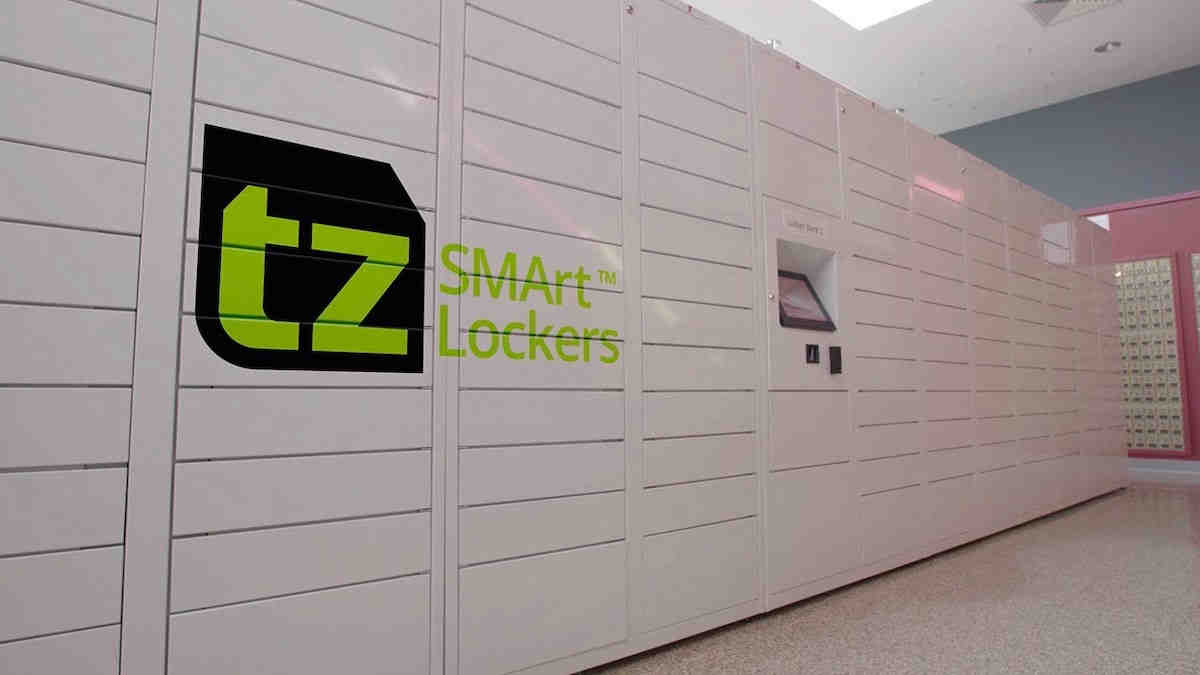TZ Lockers paid down $7.6m in debt as US pipeline continues to grow

The $7.6 million debt pay-down today means that TZL can focus on increasing its recurring revenue base, as its US business continues to grow. Image: Supplied
The $7.6 million debt pay-down today means that TZL can focus on increasing its recurring revenue base, as its US business continues to grow.
Smart locker and IoT devices company TZ Limited (ASX:TZL) has today paid down $7.6 million in debt, as it looks to recapitalise and strengthen the company’s balance sheet.
As part of the recapitalisation, TZL has already raised $7.05 million through a rights issue in June, as well as $2.58 million through a placement in April.
The combined fresh funds of around $9.6 million has now allowed the company to pay down $7.6 million in principal debt, and $392,000 in interest.
As part of further recapitalisation, the company has also agreed with major shareholder First Samuel to convert $2 million of maturing debt to equity at 12c a share.
After this equity conversion, it will leave TZL with only $2.1 million of debt owing on the balance sheet, which is due on 31 July.
To repay this remaining debt, First Samuel has also agreed to provide a new 12-month debt facility of $2.5 million with a reduced coupon rate of BBSW + 4.5%, and a 1% establishment fee.
TZL’s CEO Scott Beeton said the balance sheet restructuring today will allow the company to redeploy its resources to income producing activities.
“TZ is pleased with the results of recapitalisation, our expanding new business pipeline and growing recurring revenue.”
“The full attention of the board and management is now focused on growing TZ’s recurring software subscriptions and the newly installed, hosting, monitoring and maintenance services to our global customer base,” commented Beeton.
Expanding US pipeline
TZL’s pipeline in the US has continued to increase, with purchase orders received in FY21 now surpassing US$9.3 million.
A substantial share of this order book will be recognised and completed in FY22.
The expanding US pipeline is the result of TZL’s strategy of diversifying its business model across multiple industry sectors and product applications.
This was also achieved by leveraging the company’s technology edge to deliver recurring revenue and best-in-class solutions to the US market.
In the US, TZL has built up a list of blue chip customers that include Apple, Google, Microsoft, and Disney.
Microsoft, for example, signed a US$547k contract with the company last month to upgrade its Locker Bank hardware.
Apart from blue chips, TZL has also solidified its position within the university sector, and is currently the main provider for the US university mailroom and package locker market.
Outlook for FY22
Coming out of COVID-19, TZL has become a globally significant player where its products are seen as the best-in-class options to support the dynamic and flexibility demands of the changed workplace.
As a result, it is projecting a positive outlook for FY22, as economies come out from under the COVID cloud.
The company said its recurring revenue for FY22 is expected to be $3 million, a 16 per cent increase over the previous outlook of $2.5 million.
In addition, a significant share of the purchase orders closed by TZL’s US business of US$9.3 million in FY21 will be recognised and completed in FY22.
The company is also anticipating a strong FY22 in Australia, with two projects in final contract negotiations that would see the sales of SMArt Locks, electronics and software for over 6,000 day lockers.
Expected revenue in Australia is over $2 million for the collective hardware sales, with on- going annuity services in excess in aggregate of around $150,000 per annum over three years.
According to the latest data, the global market for smart locks is tipped to reach US$3.3 billion by 2025, while the market for parcel lockers alone is expected to grow from US$645 million in 2020 to US$1.44 billion by 2027.
The TZL share price has risen from 4c to 11c in the past 12 months.
This article was developed in collaboration with TZ Limited, a Stockhead advertiser at the time of publishing.
This article does not constitute financial product advice. You should consider obtaining independent advice before making any financial decisions.
Related Topics
UNLOCK INSIGHTS
Discover the untold stories of emerging ASX stocks.
Daily news and expert analysis, it's free to subscribe.
By proceeding, you confirm you understand that we handle personal information in accordance with our Privacy Policy.








